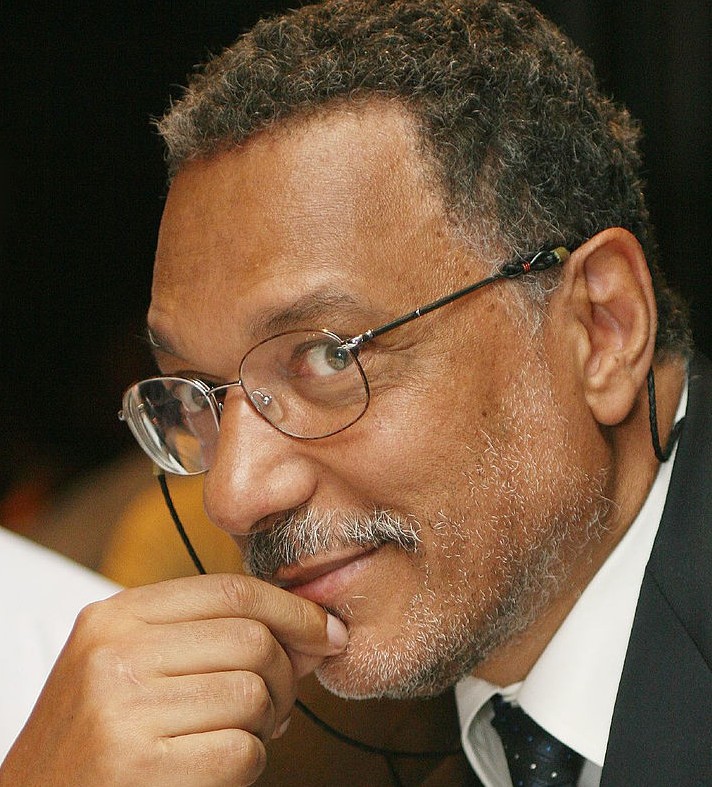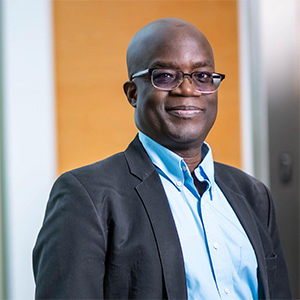On March 21, the International Day for the Elimination of Racial Discrimination is observed annually. The 2023 theme of the International Day is: urgently combatting racism and racial discrimination. The Universal Declaration of Human Rights says that everyone is entitled to all rights and freedoms without distinction of any kind, such as race and colour. However, racism and racial discrimination continue to impact people around the world.
In an effort to highlight some of our great researchers at the IOF, we sat down with Dr. Daniel Pauly and Dr. Rashid Sumaila to talk about their unique life experiences and careers thus far.
Dr. Daniel Pauly

Dr. Daniel Pauly
How do you, if you do, engage with the struggle against racial discrimination?
[With my family] we haven’t really internalized the racist thing – for the most part, we have been able to reject all of that, but there is a little bit of privilege there. Life can be very difficult if you work and live in a different place. I don’t engage with racism because I would be wasting my time.
In the last couple of years, however, looking at what’s happening in America, I have been forced to revise a little bit. I basically accepted that I could do more. And so, that’s why we are having this interview.
You have mentioned beforehand that, growing up, you didn’t feel like you fit in. Do you feel like that has changed at all? Do you feel like you fit in?
When I grew up in Switzerland, I was the only person of colour in town. And in Germany, it was not that different. At the time, they weren’t very multicultural. This has not changed. And while I was made to feel uncomfortable, I did not experience direct violent racism. In Canada, people don’t really ask me those kinds of questions. Yeah, they might ask, but it’s a genuine curiosity. They don’t ask you in terms of how you don’t belong, which was the case when I was younger.
And I know, young people now want an answer to that question, but [growing up] if I had given lots of attention to this question, I would have had no time to do research.
How does your research take into consideration minorities?
Some of my work has something to do with equity and access to information, but it doesn’t concern the minority, it concerns the majority.
The majority of people live in the Global South. And the majority of people in the Global South that don’t have access to information about the ocean, actually work by the ocean. A majority of people on earth are actually brown people, and they will be considered minorities in most Western countries. We are not a minority.
So, my concern has always been how to establish a balance between the Global North and Global South in terms of information and the potential for doing things to empower colleagues in the Global South. So, I have not researched specifically with minorities in rich countries, but I have dealt with the question.
I cannot singlehandedly re-establish a balance that colonialism and history has knocked down, but in my field, the way I’ve chosen to re-establish some equilibrium, is to make information available on a global basis.
So, with Sea Around Us, we devote to each country, whether it’s small or large, the same attention on one page. In other words, whether you are a small Pacific Island country or a big country in Europe, or North America, you get one page to present. And we get the same level of depth.
And this leads, obviously, to a situation where we are a little bit superficial with regard to the countries that have lots of information available, but then again, it’s not made for them. We provide information for Global South countries that don’t even know they have information on. This is because lots of the research that includes them is not made available to them. This is because experts come from a Global North country and publish in an expensive journal that is difficult to access. and this information is not sent back.
Dr. Rashid Sumaila

Dr. Rashid Sumaila
When you started your fisheries work, did you find the work environment very inclusive and diverse?
My economics professor who I studied with in Norway came up to me and said that we should work together, that he had a project about fisheries. And he said: “I tell you, if you agree to do this, you will never regret it.” When I asked why, he said: “Because you know, we are embarrassed. We go everywhere, and in every meeting, we are talking to white males. And so, you will never regret it. There are so few other people in the profession.”
And so I took the project, and started shaking things around.
Do you talk about race in the classes you teach?
Yeah, I think mostly, I don’t talk much about it. Not in class, I mean, but it clearly informs what I do in class personally, what my own commitment to everybody is. I try to be fair to everybody, put everybody on the same level. In my class, I kind of even out of the playing field for every student. I do my best to make sure everybody gets a chance. That is how I show it.
Your paper about an equitable Blue Economy has been recently published. How is your work informed by diversity, inclusion, and equity?
In terms of my future work, it really shows up. I will go to a conference, and it’ll be about global issues. And they will have North America, Europe, Australia, even a country as small as New Zealand, but you don’t see Africa, and most of Asia, Latin America nobody talks about.
And they’ll make excuses like “no, there’s no data.” There is data. People are fishing, people are eating fish. So, there has to be a way to estimate what’s happening. When you think of West Africa, Southeast Asia, any coastal people, they all depend on fish. So, in my work, I’m stressing scall scale fisheries, women and fisheries, the youth. Not just the big boats with the big guys doing their thing.
Often, in small coastal communities, fishing rights are being bought up. So, people, they don’t see the dollars and their fish is taken away. All these things, I try to highlight in my work. We did one graph which shows that with climate change, the fish are moving away from countries in the tropics. However, when you look at emissions per capita, these countries are very low. We highlight all these things in order to make people sit up, and pay attention.